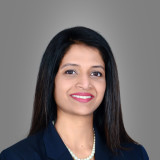
“Hey Google, where is the ACP meeting of 2019?”
“On the website acponline.org, they say the American College Physician will host internal medicine meeting 2019, the premier clinical meeting for internists in Philadelphia, Pennsylvania – April 11th-13th, 2019.”
For my colleagues spanning all ages, interested in emerging health care trends and technologies but were unable to attend the meeting, I hope to give the readers a general oversight. The 2019 ACP meeting, a benchmark conference, was kicked off by an excellent keynote speech by Dr. Vivek Murthy, as it debuted actionable automation in healthcare with artificial intelligence (AI) tools.
The Framework
The three days of well-crafted scientific program was focused on contemporary insights and tackling chronic disease management such as heart failure readmissions, sleep apnea, and opioid epidemics. The organizing committee had curated critical concourses in the ambulatory and acute care settings. The clinical skills workshop was an astounding success. The sessions spanned many topics such as disease management, policies, geriatric medicine, palliative care, and health technology initiatives. The program engaged primary care physicians for the professional use of continuous glucose monitoring and its clinical applications.
Research published by the American Diabetes Association (ADA) showed a 26 percent increase in cost for diabetes management over five years from 2012–2017. The cost associated with medical expenditure is at 30 percent increase for combined inpatient hospital care and prescription medications to treat diabetes and related complications. The estimated economic cost for diagnosed diabetes is $327 million. One of the social determinants in diabetes management is access to health care and health behaviors. The innovative technologies in the field of continuous glucose monitoring and screening for diabetic retinopathy fulfills the promise of technology for the masses.
Physician Advancement
The meeting unveiled new physician-led coaching services for quality improvement on virtual training interphase. Individual physicians and organizations can access the curriculum for free or a fee based on their membership. The clinical skills center was a “siren” which summoned physicians. The curriculum for hands-on training and certification opportunities for point-of-care ultrasound (POCUS) was an essential enhancement to physician skills. The sheer numbers created a viral buzz in the exhibit hall.
My heart fills with pride to see the illustrious physicians who embark on a journey of work-life balance and continue scholarly pursuits. Grit, resilience, commitment, and planning is what echoes the tough path the newly inducted ACP Fellows undertake. Kudos to the new ACP Fellows!
While automation is more scalable, it is only the energy of the new fellows that can demonstrate character and dedication to the medical field.
Digital Health Transformation
Over the past decade, health care has witnessed an insurgence of technological innovations in every branch of medicine. In my lifecycle from a resident to an attending, I have experienced digital transformation by adopting electronic health records (EHR), changing legacy EHR systems, and venturing into the convoluted neural networks of Health AI.
Experienced panelists chaired sessions discussing EHR challenges, innovations, and the competence to see the bigger picture. Technology undoubtedly enables internists to integrate their clinical skills into the digital revolution. The overall planning of the "Tech Hub" gave an excellent overlay of the future of medicine in the next decade. It traversed the ideation of novel emerging concepts by protecting intellectual property, finding the right investors, and targeting deliverable partners for building an innovative product.
The “Hackathon” caught my attention. The ACP collaboration with MIT was an excellent platform for an exchange of ideas. They sought physician input for designing innovative prototypes to enhance EMR clinical workflow.
Man, versus the Machine
The manufacturers of IDx displayed the first artificial intelligence (AI) automated machine approved by the FDA for rendering an ICD 10 diagnosis of Diabetic Retinopathy. As the algorithm processed the retinal images and checked off the results, I waited apprehensively. Thankfully, I did not have diabetic retinopathy.
The European Commission is scrutinizing ethical guidelines, standards and regulatory oversight in AI-related research. Medical professionals are integral to the AI review board in health care focused AI development and expecting transparency of algorithms. The real world has yet to independently review the specificity of the diagnosis and the sensitivity of the algorithms.
#meetat ACP2020
As one walked through the aisles, the sheer demand for physicians in remote areas on the global map was very apparent. This diabolical reality bears testimony to physicians’ need for assistive tools in the current health care system.
As a new player in health care, I also checked with Alexa about the meeting details. However, her social bookmarking skills were still not at par. Perhaps Alexa was overwhelmed by her new skills associated with HIPAA-compliance.
The ACP program was a beacon of effortless knowledge, a portal to the future of evidence-based digital medicine in the real world.
Nita K. Thingalaya, MD, is an internal medicine hospitalist with over 15 years' experience as a practicing physician. She is currently Medical Director in Health care Utilization with experience in clinical research and informatics. The article is independent of her affiliations past or present.







